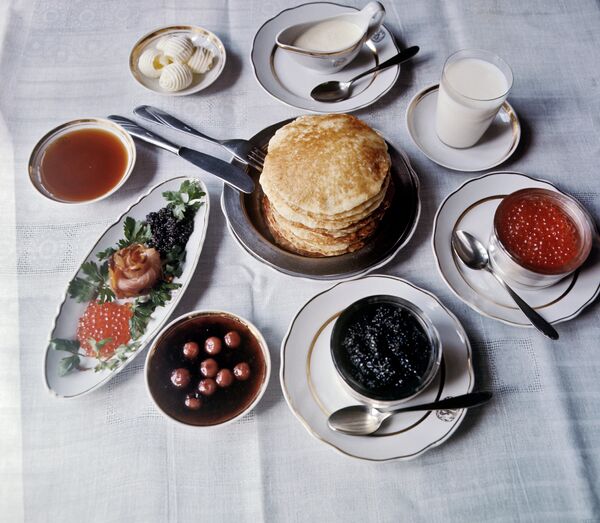The Point in Looking for the Russian Soul Is in the Search Itself
RussiaProfile.Org, an online publication providing in-depth analysis of business, politics, current affairs and culture in Russia, has published an unusual Special Report on the mysterious "Russian soul". Fifteen articles by both Russian and foreign contributors examine this concept, which has been used by Russia watchers for some 150 years, from a contemporary perspective. The following article is part of this collection.
“The mysterious Russian soul, the subject of admiration and curse,” wrote the Soviet poet Evgeny Dolmatovsky. Judge all you want, but I believe that the mysterious Russian soul is no more an enigma than the mysterious Indonesian soul. I have been fortunate enough to travel a lot and I am absolutely convinced that (and here comes the revelation) people are very much the same in the United States, Russia, or Afghanistan.
Traditionally, when people talk about the Russians they either mention vodka or Russian hospitality. Well, here is a counterargument. Do you mean to say that in your country, people are not hospitable? Or maybe you do not like whiskey, grappa, raki, or whatever you call it? This reminds me of a Jewish wedding I attended a few years ago. All of the guests had to put on a yarmulke, and all of a sudden, at the dinner table, it was hard to believe that some of us were not Jewish, not only because of outward appearance, but also because people had no trouble finding something to talk about or appreciating a good joke (barring conversations about politics or religion).
Thus it is my firm belief that there is no mystery behind the Russian soul. Well, then, how can one solve a mystery when there is none? I guess the meaning of the search for an answer to this eternal question is in the search itself. Pondering the subject has naturally led me, given my philological background, to analyze the Russian language. There are several sayings that might help one better understand the “mystery.”
First of all I will single out the following saying: “The Russians harness slowly, but ride fast.” This saying is also of interest because it is not a piece of centuries-old Russian wisdom, but the unbiased view of a foreigner, Otto Eduard Leopold von Bismarck-Schönhausen, first chancellor of the German Empire. It’s true. It takes a lot of time for us to start doing something. We hate schedules and despise deadlines. That is why Western-type values, let alone Western-type democracy, find it very difficult to take root in Russia. What we have nowadays is no more than a Western-type exterior. Maybe I do exaggerate a bit, but only a bit. Nevertheless our achievements in science, art and business are known all over the world. It seems that a Russian has to be cornered to start acting. And then what an act it is! Well, set aside soccer. I really don’t want to talk about it because it would take pages. But still I do believe that one day we’ll win the World Cup.
It is interesting to note that even during the Soviet times such “believing” made us all far from materialistic. Whether one believed in God or not, the reliance on “bon chance” was great. The Russian “avos’” is the basis of our philosophy. “Avos’” can be translated into English as “maybe” or “perhaps.” At least that’s what the books say. But the dictionaries miss one very important shade of meaning, which is lost in translation—it is “hope.” I believe it can be ascribed to the fact that we have always been a very “religious” people, since we are ready to accept whatever God has in store for us and believe that the Almighty will be kind and forgiving. Does it always turn out to be fine? Of course not. But surprisingly enough, it wouldn’t stop a Russian person. And this leads me to another very good saying: “The Russian man wouldn’t cross himself until he hears thunder,” meaning that he won’t think about danger until he absolutely must do so.
I have touched upon the subject of religion. I want to stress that religious diversity, from my observations, never turned into religious zeal on any side. I refuse to recognize as a religious standoff the things we have been witnessing during the last decades in the south of Russia. It is just plain terrorism, which some try to disguise as a struggle for beliefs. Different religions peacefully coexisted in Russia for centuries, and many a time fought together against a common enemy.
Bare in mind that my thoughts are merely my own, based on my personal experience. I was brought up in a mixed Muslim-Christian family where no one has tried to convert anyone. We are just a group of people united by a common goal—to have a nice family. I believe that my family is a miniature version of the Russian society, which took centuries to build. And, to my mind, it is not so much about tolerance, as about the ability to adapt.
We are fascinated with foreign countries. We admire Mediterranean food, Italian architecture, German cars, Japanese televisions and, of course, dream about going to Paris. There is even a saying in Russia: “To go to Paris and die,” meaning that every Russian must visit the capital of France. Amazingly enough, this fascination remained before, after, and even during Napoleon’s invasion. Such a mix greatly enriched the culture of the country and created a truly unique nation, in which everyone, whether Christian, Muslim, Jewish or whatever else “harnesses slowly.”
Comment by Samir Sakhbaz, the head of RIA Novosti’s foreign language media department.
Special to Russia Profile

